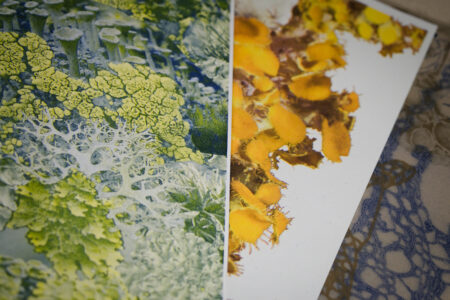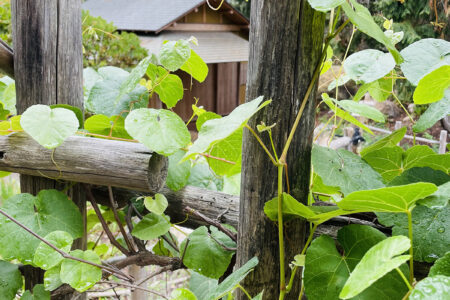11th Annual Santa Barbara Botanic Garden Conservation Symposium
- Instructor
- Santa Barbara Botanic Garden
- Location
- Santa Barbara County Education Auditorium
- Date
- January 20, 2024
- Time
- 10:00AM - 4:00PM
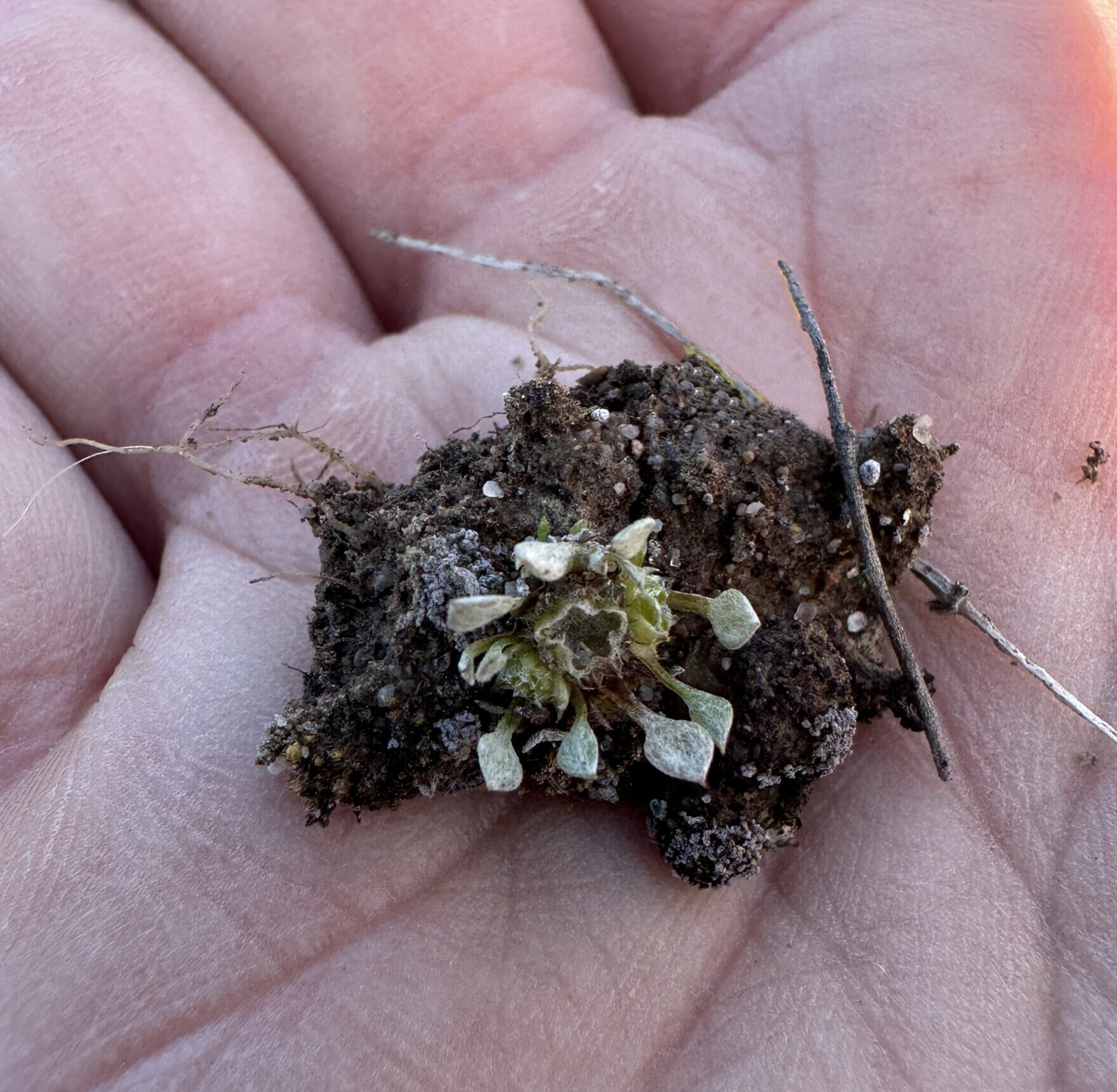
Explore more topics
Tiny Taxa Doing Big Things
Presented by the Nakashima-Rennie Family
Sometimes in life, it’s the little things that make all the difference. That’s true in nature, too.
The web of life is beautiful and complex. From the “belly plants” forming a miniature forest to feed the food web and the myriad of microscopic organisms holding our soil together to the tiny midge flies pollinating the cocoa trees that make our chocolate – everything, regardless of size, has a job to do and a niche to fill.
Come celebrate the diversity of life with us and discover the many ways we depend on the itty-bitty organisms we often don’t even realize are there. Hear about cutting-edge technology being used to understand these organisms and the relationships between them and learn more about what you can do to help conserve this wondrous world.
This year’s recipient of the John C. Pritzlaff Conservation Award is Shirley C. Tucker, Ph.D. We are privileged to collaborate with Dr. Tucker and take great pleasure in presenting her with this award. Her contributions to biological diversity and humanity through her research and philanthropic efforts, coupled with her commitment to a simple and sustainable lifestyle, serve as a source of inspiration for us all.
Event Sponsors:
The Nakashima-Rennie Family
Tickets:
In person registration has closed, but you can still register to attend virtually, or watch the livestream below.
Schedule of Events
| 10 –10:30 AM | Welcome and Introduction to Tiny Taxa Denise Knapp, Ph.D., director of conservation and research at Santa Barbara Botanic Garden |
| 10:30 – 11 AM | Rikke Reese Naesborg, Ph.D. | Lichens: Nature’s Undervalued Secret Service Agents Lichens are often underappreciated despite serving important ecosystem functions. Typically going unnoticed, yet supporting larger, ostensibly charismatic organisms, they cycle nutrients, generate soil, and capture carbon, as well as feed, shelter, and provide nesting material for animals. So why are lichens—nature’s secret service agents—rarely considered for conservation? |
| 11 – 11:30 AM | Jim Shevock, Ph.D. | Mosses and ‘Worts’: Nature’s Complex, Unique Ecosystem Servants Mosses, liverworts, and hornworts (bryophytes) are the earliest land plants that still survive today. As simple as they are (they don’t have the roots, flowers, seeds, and tissues to transport fluids that the flowering plants have), they do important jobs in complex ways, including stabilizing the soil and providing water to the environment. Take a journey with Jim into the world of these unique organisms, which also have a special super-power that helps them deal with drought. |
| 11:30 AM to 12 PM | Matthew Bowker, Ph.D. | The Earth’s Living Skin: How Biocrusts Make Ecosystems Work, and How We Can Save Them Biological soil crusts (biocrusts) are like a protective living skin over the surface of the soil formed by a diverse collective of microbes and tiny plants. They have an outsized effect on their environments by stopping soil erosion, altering water capture and flow, building up soil fertility and shaping other biological communities. Biocrusts can be lost from ecosystems due to human-caused disturbances that break the soil surface. Researchers around the world are developing exciting new techniques to hasten the recovery of biocrusts where they have been lost. |
| 12 – 12:50 PM | LUNCH |
| 12:50 – 1:20 PM | Erica McAlister, Ph.D. | Big Impact – Small Bodies: Why Do We Need Flies? Big is beautiful but is it the best? Flies are some of the most maligned animals that we share our world with but without them it would be a much worse place. Leave behind your perceptions that these species are just death and disease and come away knowing about how they have helped us through exploration, discovery, and chocolate. From just 7cm down to 0.4mm in size, these mini marvels are massive in importance. |
| 1:20 – 1:50 PM | Zach Phillips, Ph.D. | Ant Bathing: The Benefits of Closely Watching Ants and Their “Creepy-Crawly” Guests A sit spot is ‘a favorite place in nature that you visit regularly to cultivate awareness…and study patterns of local plants, birds, animals, etc.’ Ant colonies make for great sit spots because their nests and foraging trails attract all kinds of creatures (but do mind the mandibles). In this talk, I’ll describe a research project on leaf-cutter ants and a strange arthropod that lives inside their nests. The study was focused and scientific in aim, but its ‘sit spot methods’ led to other forms of awareness, knowledge, and appreciation—benefits accessible to anyone closely observing tiny taxa. |
| 1:50 – 2:20 PM | Kevin Lafferty, Ph.D. | Parasites: The Little Giants Inside All of Us Parasites, though smaller than their hosts, surpass their free-living relatives, earning them the moniker “little giants.” Despite their small size, their prevalence in ecosystems allows their collective biomass to outweigh larger organisms. This abundance underscores their significant ecological role, with parasites often steering the course of larger organisms. In the intricate web of life, parasites wield outsized influence when occupying the driver’s seat within these larger hosts. |
| 2:20 – 2:50 PM | Kristen Lehman, Ph.D. | Understanding Species Interactions Through the Building Blocks of Life DNA is the genetic material shared by all living things on earth, and DNA barcodes are small fragments of any genome that can be used to identify a species without direct observation. We will discuss using DNA barcodes as a tool in our conservation tool belt to understand animal diets, from tiny snails to charismatic foxes. We will also discuss the importance of collaborative biodiversity science that underlies these molecular tools. |
| 2:50-3:20 PM | BREAK |
| 3:20 – 4 PM | Panel Discussion |
To keep up with the latest Garden announcements subscribe to our newsletter at the bottom of this page and follow us on social media @SBBotanicGarden
Scroll for Speaker Bios
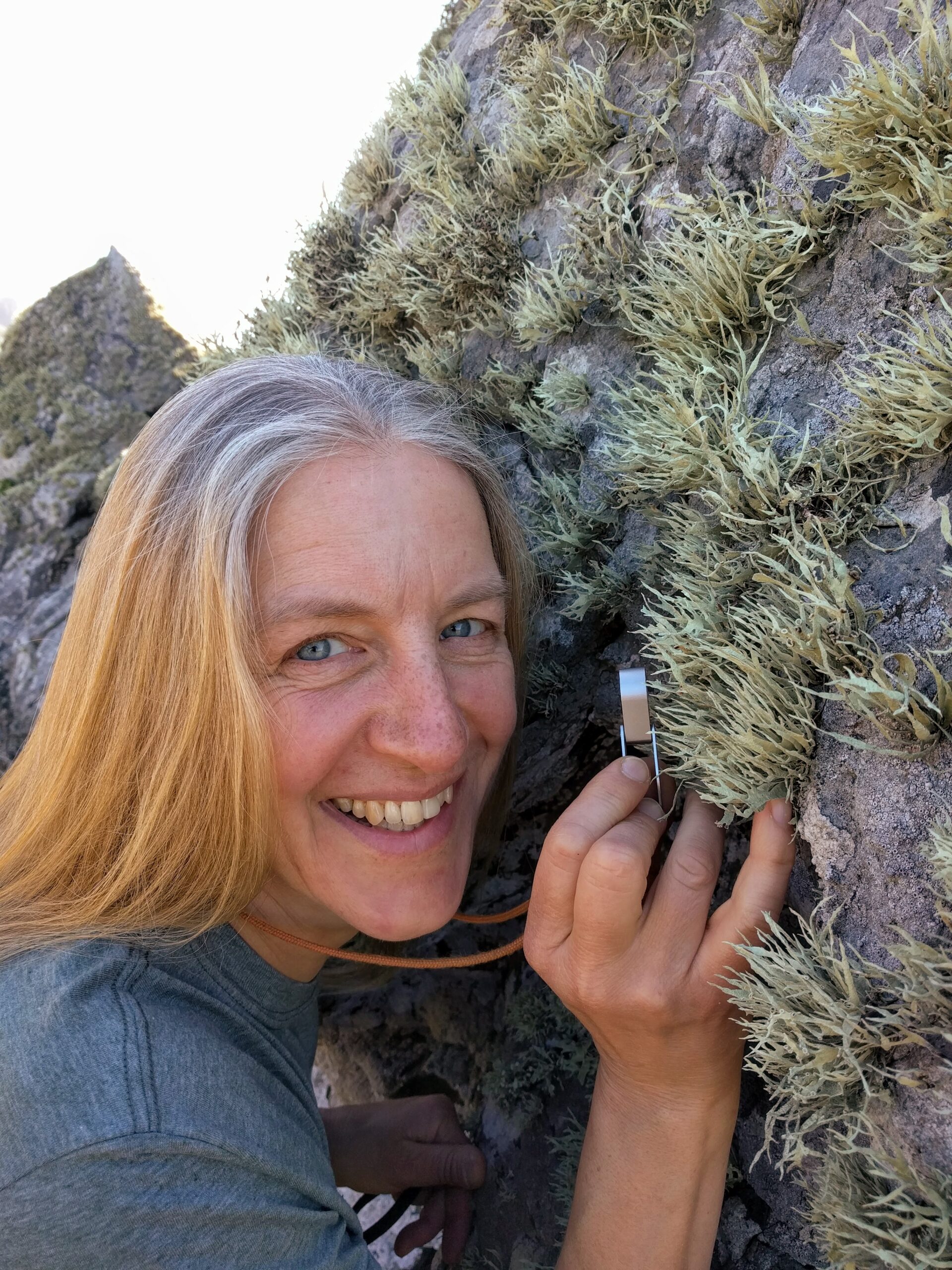
Rikke Reese Næsborg, Ph.D.
Rikke Reese Næsborg, Ph.D. is the Tucker lichenologist and curator of the Lichenarium at Santa Barbara Botanic Garden. She is interested in investigating lichen community composition and ecology in order to identify why different lichen species are distributed differently across landscapes. Another major interest is conservation of lichens — a complicated task that is only possible by expanding knowledge of lichen distribution and ecology.

Kevin Lafferty, Ph.D.
Kevin Lafferty is a senior scientist with the US Geological Survey and an adjunct faculty at UC Santa Barbara. He is fond of parasites and will try to persuade you to feel the same way. Come hear how these tiny taxa dominate ecosystems, control your personality, and deserve special protection.

Kristen Hasentab-Lehman, Ph.D.
Kristen Hasenstab-Lehman, Ph.D., is a botanist, and the conservation geneticist and lab manager of the Genetics Lab at Santa Barbara Botanic Garden. She integrates field studies, molecular tools, and histological techniques to document biodiversity and to understand the interplay of ecological and evolutionary effects on plants of conservation concern.
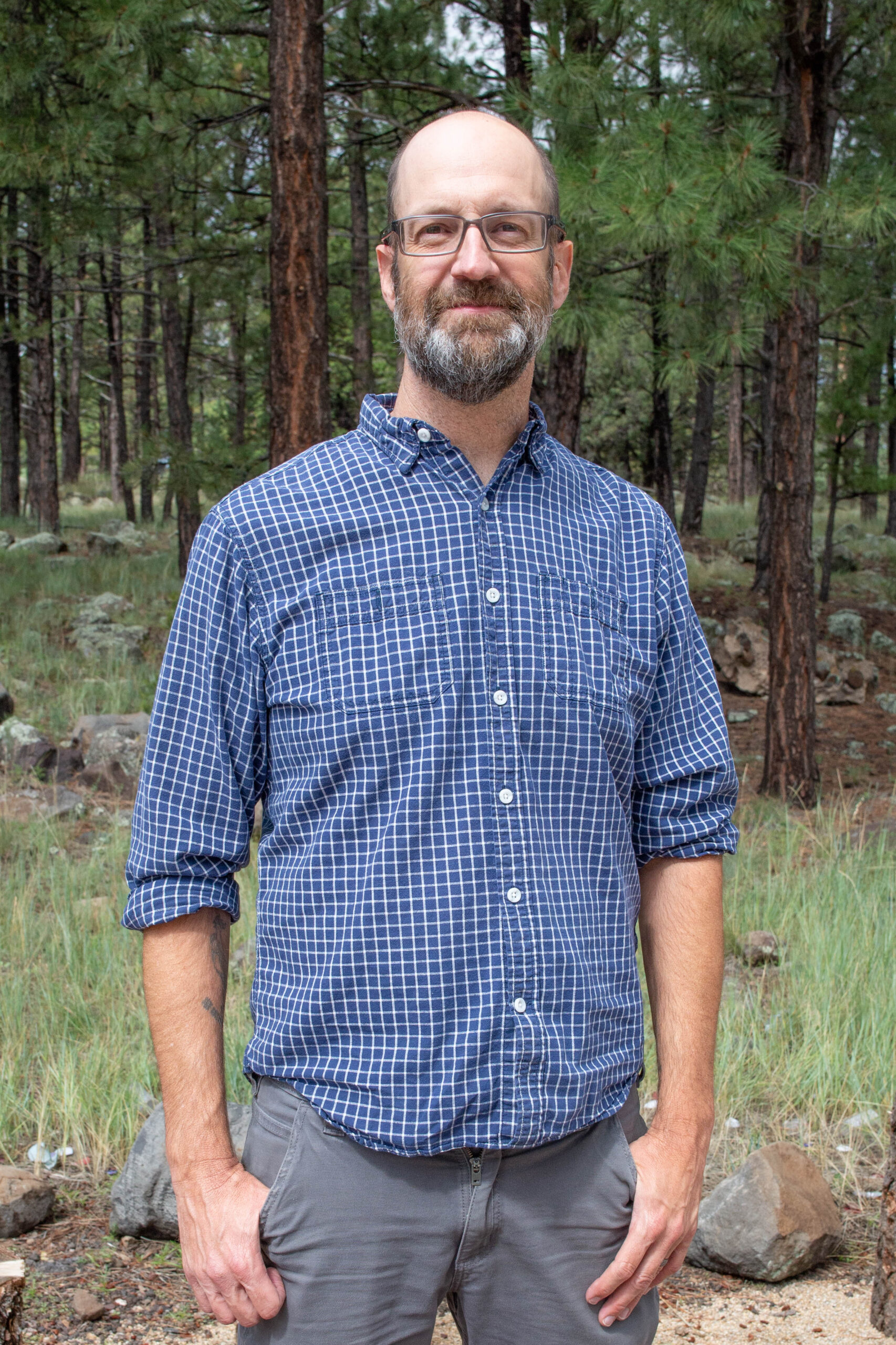
Matthew Bowker, Ph.D.
Matthew Bowker is an Associate Professor in the School of Forestry and Associate Director of the Center for Ecosystem Science and Society, both at Northern Arizona University. He is an ecologist drawn to the soil – the world’s largest reservoir of biodiversity – particularly in the dry corners of the world where he has lived most of his life. Nearly 30 years ago he became acquainted with the living skin on top of desert soils, a “biocrust” formed by tiny plants and microbes that protects and enriches the soil underneath. He never stopped being fascinated by these mini-ecosystems and has built his career around better understanding them and restoring them to degraded ecosystems.

Zach Phillips, Ph.D.
Zach Phillips, Ph.D.is an invertebrate conservation ecologist at Santa Barbara Botanic Garden. He studies interactions between insects, spiders, birds and plants that can inform conservation strategies. When friends and family members ask him to describe what he studied in grad school, he says, “little arthropod guests of leaf-cutter ants, called myrmecophiles.” They usually respond, “What?”
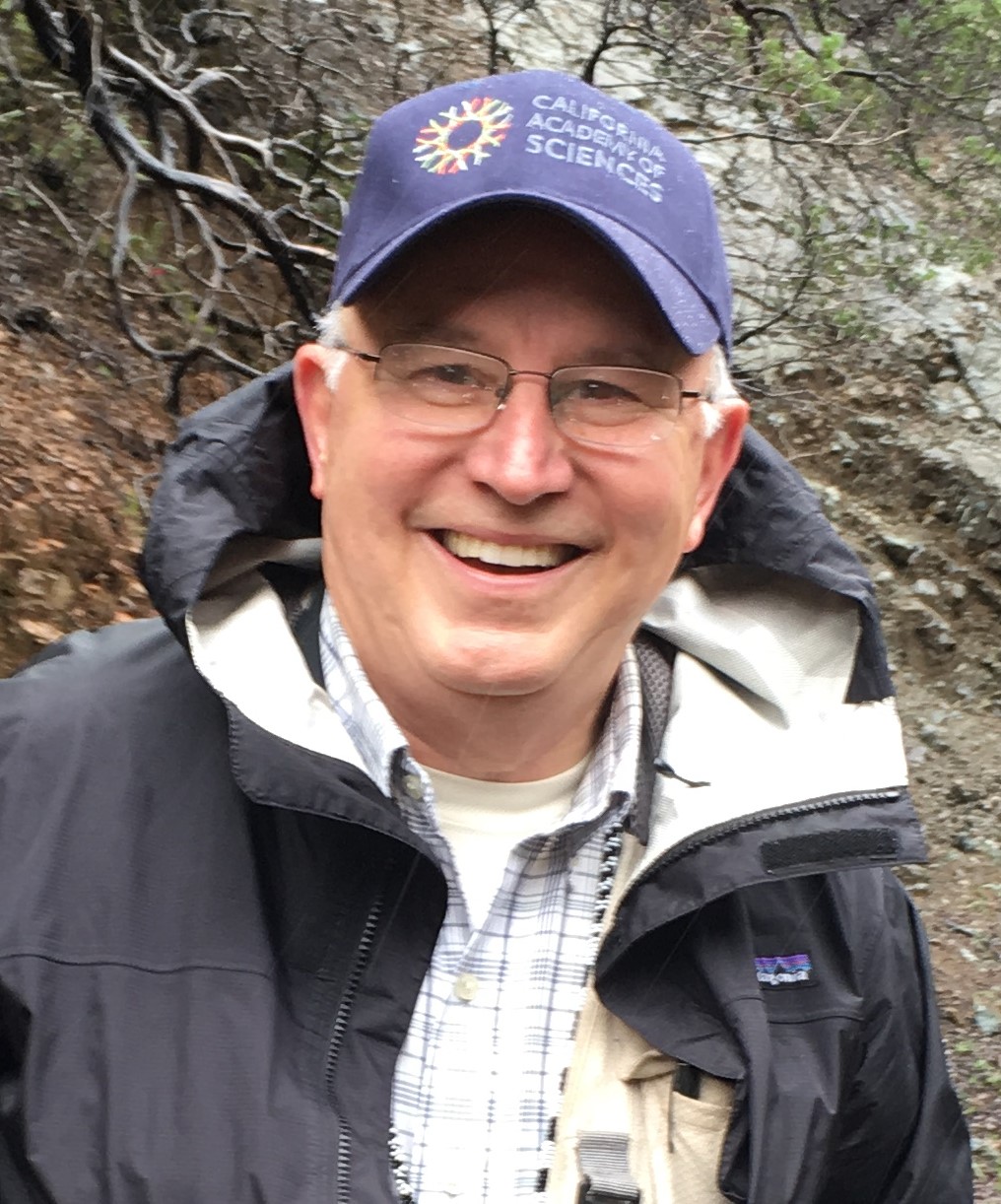
Jim Shevock, Ph.D.
Jim Shevock, retired in 2009 from public service with a botanical career spanning more than 30 years between the USDA Forest Service and the National Park Service. He is currently a research associate and fellow at the California Academy of Sciences, Department of Botany and a research associate at the University Herbarium, UC Berkeley and National Tropical Botanical Garden, Kaua’i. Initially a vascular plant taxonomist by training with a focus on the flora of the southern Sierra Nevada, Jim migrated to the study of bryophytes (primarily mosses) in the late 1990s. His plant collections, just over 62,900 specimens, are at the herbarium of the California Academy of Sciences (CAS) with selected duplicates provided to major bryophyte herbaria around the world. The majority of his international field work has occurred in China, Taiwan and the Philippines. Jim has seven flowering plants, eight mosses and two liverworts named in his honor included the moss genera Rheoshevockia and Shevockia, both first discovered in Yunnan Province, China.
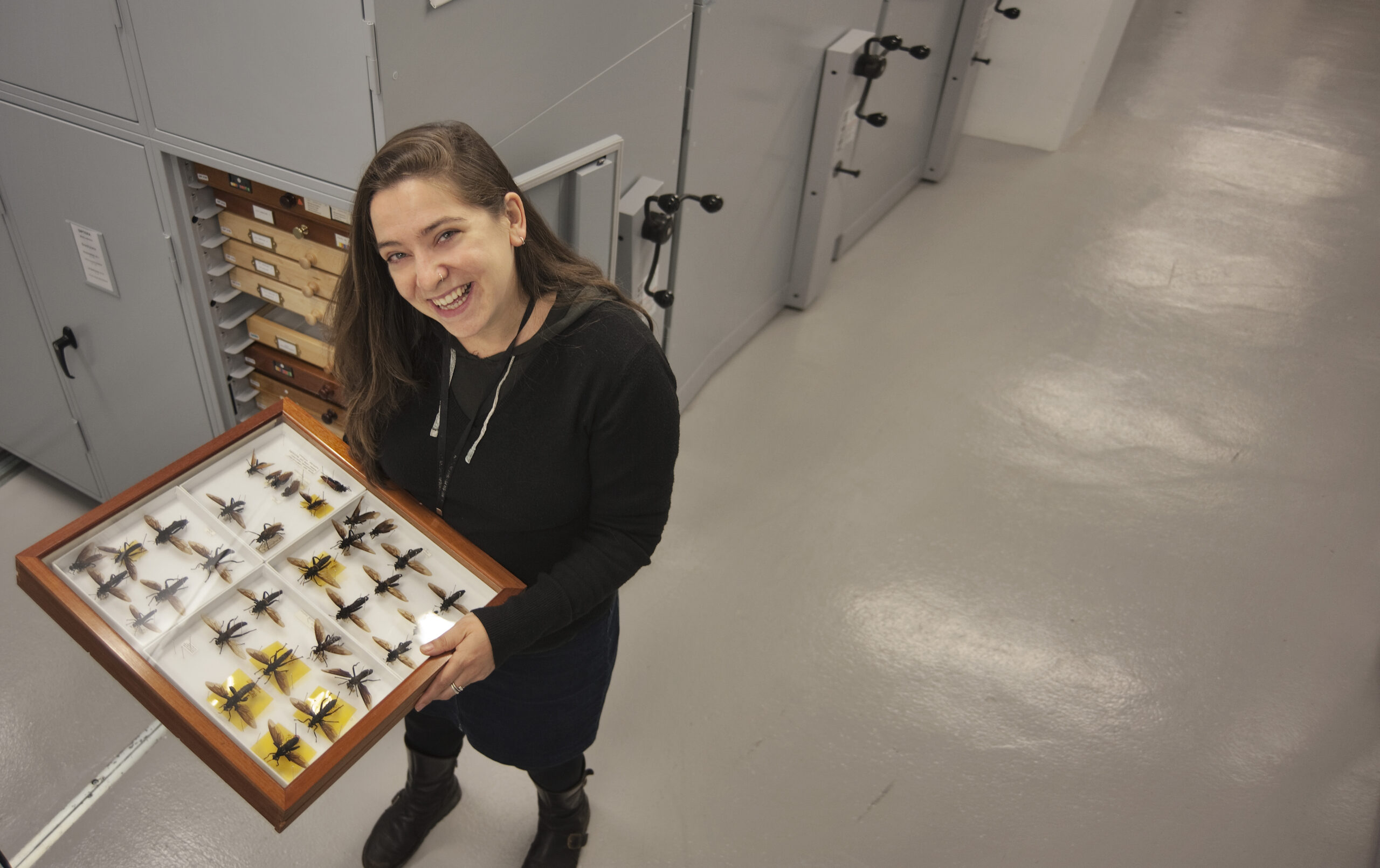
Erica McAlister, Ph.D.
Erica McAlister, Ph.D., is a Principal Curator for Diptera and Siphonaptera. She curates and researches the lower Brachycera, Mycetophilidae and Culicidae collections in Diptera, and the Siphonaptera collection. She is involved with research into Dipteran taxonomy, biodiversity projects and historic DNA recovery from specimens. Erica also teaches on several master’s courses and is an active communicator of Entomology to all that will listen. In addition to her research, Erica is an award-winning author and radio presenter.
 Donate
Donate